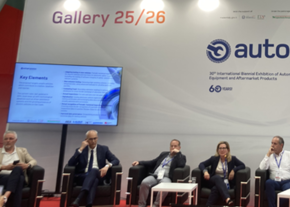
26/01/2018
Vehicle approval, the EU’s efforts in ensuring free accessibility to OBD data
Editorial Staff
Egea, the European Garage Equipment Association, welcomed the interim agreement between the European Council and the Parliament on vehicle type-approval reforms and market monitoring. However, some issues still remain unsolved
On December 20, representatives from all EU member states approved an interim agreement between the Estonian Presidency of the European Council and the Parliament on vehicle type-approval reforms and market monitoring to re-launch the automotive sector. Egea, the European Garage Equipment Association, welcomed this agreement which promises to guarantee a higher level of safety and environmental “performance”, besides addressing the main defects identified in the current type-approval system.
Important information were shared on free access to Obd data, repair and maintenance activities, in particular on standard Obd ports, as it represents the vital channel of communication with the vehicle and all its data, as well as on the necessary information needed for preparing vehicles for type-approval tests, increasingly specific on each individual vehicle, by independent operators.
Jaume Berenguer Baquès, president of Egea, said: "by keeping the standard Obd port freely accessible, even when a vehicle is in motion, thus making it possible to access OBD data, diagnostic, maintenance and repair information, the European Union has reaffirmed its support in favour of fair competition, innovation and independent entrepreneurship in the automotive aftermarket. Our affiliates appreciated this significant clarification and should now be able to continue offering their customers competitive multi-brand diagnostic tools, guaranteeing a fair and competitive choice. On the other hand, car manufacturers have started to introduce new and exclusive electronic certificates which require the use of their own original tools, thus preventing free Obd access to all independent operators. This crucial issue goes clearly against the measures adopted, and will therefore have to be addressed in 2018 by European legislators. Furthermore, it is also clear that the Commission will also have to understand how to enforce these new measures in an increasingly connected world and ensure access to on-board data in an effort to develop the potential for digital innovation within the entire supply chain." The agreement will be submitted to the European Parliament sometime in 2018 before reaching the Council for final approval.
Important information were shared on free access to Obd data, repair and maintenance activities, in particular on standard Obd ports, as it represents the vital channel of communication with the vehicle and all its data, as well as on the necessary information needed for preparing vehicles for type-approval tests, increasingly specific on each individual vehicle, by independent operators.
Jaume Berenguer Baquès, president of Egea, said: "by keeping the standard Obd port freely accessible, even when a vehicle is in motion, thus making it possible to access OBD data, diagnostic, maintenance and repair information, the European Union has reaffirmed its support in favour of fair competition, innovation and independent entrepreneurship in the automotive aftermarket. Our affiliates appreciated this significant clarification and should now be able to continue offering their customers competitive multi-brand diagnostic tools, guaranteeing a fair and competitive choice. On the other hand, car manufacturers have started to introduce new and exclusive electronic certificates which require the use of their own original tools, thus preventing free Obd access to all independent operators. This crucial issue goes clearly against the measures adopted, and will therefore have to be addressed in 2018 by European legislators. Furthermore, it is also clear that the Commission will also have to understand how to enforce these new measures in an increasingly connected world and ensure access to on-board data in an effort to develop the potential for digital innovation within the entire supply chain." The agreement will be submitted to the European Parliament sometime in 2018 before reaching the Council for final approval.








